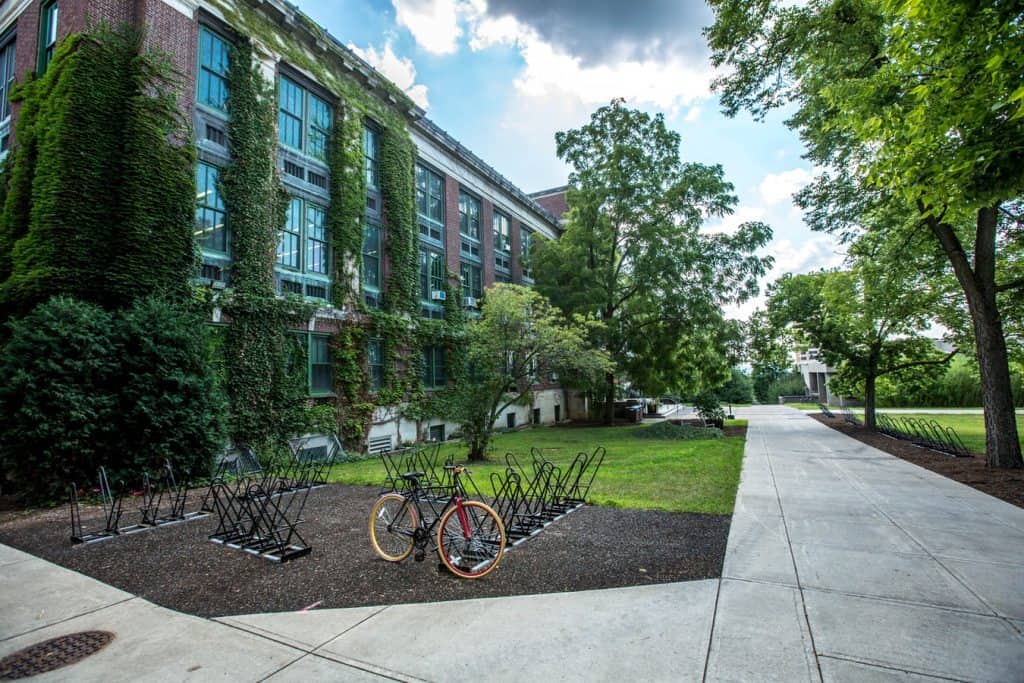Why Universities Should Hold Virtual Open Days
The COVID-19 pandemic has brought about many changes for universities. Many schools have spent the bulk of the last three semesters conducting virtual education. Facilities have been closed and activities restricted and canceled. Furthermore, there have been direct health-related challenges regarding the treatment and protection of students. Also among the challenges has been the need to adjust recruiting and admissions practices.
Managing the multi-faceted challenges of COVID is complicated, but it has given rise to a very innovative solution: Holding virtual open days. The success of these virtual events has exceeded all expectations, and while we expect to see in-person open house events returning (and in some cases, they already have), there are still many good reasons for universities to consider holding virtual open days moving forward.
Health & Safety
Health and safety are the main priorities moving forward and the key reasons behind the consideration of ideas like virtual open days in the first place. While the U.S. is in considerably better shape now than one year ago regarding COVID-19, there are still concerns about infections, spread, and variants. The more universities can embrace virtual alternatives to in-person practices, the better they will ensure that students and broader school communities remain safe.
Savings for Parents
With concern over health and safety so prevalent — and issues regarding the changing nature and quality of education also commanding quite a lot of attention — there has been relatively little public discussion about how parents and families can manage college costs. Financial hardship associated with the pandemic has been severe in many cases, which is limiting families’ options moving forward. This is true not only concerning tuition costs but, in some cases, even with the process of exploring college options.
Accordingly, the idea of helping parents to spend less on college visits came up within a broad discussion featuring university perspectives on pandemic changes. Specifically, a former admissions worker at multiple U.S. colleges pointed out that many families feel pressured to take on debt to visit campuses in person because they are aware that schools are tracking demonstrated interest. A transition toward making virtual open days the new norm would alleviate this pressure and save parents money in the years to come.
Expanding Reach
Another clear incentive for universities to embrace virtual open days is that it is likely to be an essential means of expanding the reach and preserving (if not improving) some sense of equity in admissions. There are genuine concerns about COVID-19 sidelining equity in education, mainly by affecting women and minorities more than others. As of now, these concerns relate primarily to faculty. However, there are similar issues with recruitment and admissions. We know that the pandemic more negatively impacts people in specific demographics than others, and it is reasonable to expect that the same people will have a more challenging time conducting traditional college searches and visits. Transitioning toward virtual open days would help universities open their arms to more heavily impacted prospective students and represent at least one step toward expanding reach and equity.
Meeting New Expectations
Simply put, a lot of young students may expect virtual options at this point. It may seem strange to people above “Gen Z,” but young people today are fluent in technology and prioritize convenience. Attending virtually does not mean they would not love to visit campuses given the option, but in many cases, they will expect, if not prefer, to have virtual touring opportunities. So in some sense, moving toward virtual open days can be used to enhance the overall experience for prospective students.
Marketing Professionals Can Handle It
The counter to some of the ideas above might be that university admissions and marketing departments will not be equipped to handle this kind of change. On the contrary, however, many of today’s marketing and digital media professionals are training specifically to handle the dynamic nature of their field. Expanding online education options (also a positive virtual consequence of the pandemic) are giving working marketers the chance to pursue MBAs online without giving up their jobs. Furthermore, while this is meant to result in a prestigious degree, the actual education involved in business administration studies focuses in part on changing dynamics, emerging methods, and tech-based optimization of business practices.
We realize that not every university has a trained MBA heading up a marketing or admissions department, ready to deploy virtual open days. However, things are moving in a direction in which people in these roles are increasingly educated in digital solutions, adaptability, and data-driven marketing savvy. As a result, universities today should manage the transition to virtual practice more readily than they would have even five years ago.
Tools Are Ready & Waiting
Just as the preparedness of marketing and digital media professionals enables universities to make this change, it is also important to note that there are virtual event tools ready and waiting! A great example is the virtual hiring event platform, Premier Virtual. This platform has powered over 2,500 virtual hiring events and makes it super easy to set up and host one. It will still take a concerted effort for schools to implement the change entirely, but the fact that the digital tools exist does simplify matters to some extent. University admissions and recruiting departments motivated to provide virtual open days should have no trouble doing so from a purely technical standpoint.
Conclusion
Each university faces slightly different circumstances, and we do not yet know what the public health scenario will be in the months and years to come. It is clear, however, that by and large, colleges are beginning to embrace more virtual practices regardless. Among these practices, a transition toward virtual open days is both feasible and beneficial. It is a change all universities should consider, and we expect many will.
An article was written exclusively for premiervirtual.com
By Cassidy Todd

